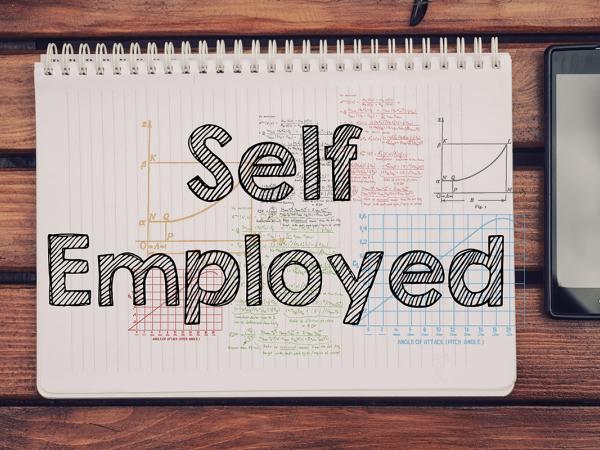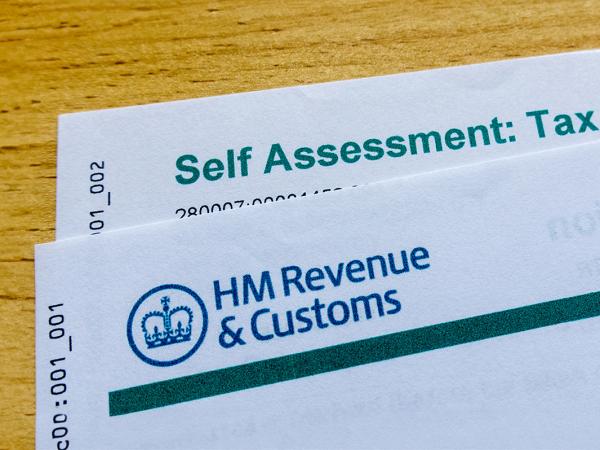Time running out before 31 January self assessment deadline
The deadline for sending most online 2022/23 self assessment tax returns to HMRC, and for paying the related tax, is 31 January 2024. If this deadline applies to you, make sure you file your 2022/23 tax return online and pay any tax you owe by 31 January 2024 to avoid penalties and interest.

Content on this page:
What are the tax return and tax payment deadlines?
Tax return deadline
Most self assessment tax returns for the 2022/23 tax year (the year to 5 April 2023) should be submitted online by 31 January 2024. If you are filling in your tax return online, make sure you complete the process by actually submitting it and generating a submission receipt!
Paper returns for 2022/23 should have already been submitted by 31 October 2023.
Note: HMRC may have emailed you to remind you about the deadline, even if you have already filed your return. If you receive one of these reminders and you think you have already submitted your return, we recommend you check HMRC have received it. You can do this by checking to see if you have received a submission confirmation email, or through your Personal Tax Account. Alternatively, you can contact HMRC – see the final heading on this page for more information about contact options.
Tax payment deadline
Tax related to the 2022/23 tax return, if due, should also usually be paid by 31 January 2024. This includes the first payment on account for 2023/24 if you need to pay one. Our guidance also explains about applying for a reduction to your payments on account.
Depending on when HMRC asked you to submit a 2022/23 tax return, you might have a different deadline by which to submit the return – see this table in our guidance. You can check when HMRC issued the tax return to you by following the instructions under the heading below.
However, the tax would still be payable by 31 January 2024 unless:
- you notified HMRC of your liability to tax for 2022/23 on time (that is, by 5 October 2023), but
- HMRC did not ask you to submit a return until after 31 October 2023.
In this case, the tax would be due three months after HMRC asked you to submit a return.
How do I know if I need to file a return by 31 January?
You have a legal requirement to file a return if HMRC have sent you a notice asking you to do so and they have not withdrawn that notice. This notice may have been sent to you by post or electronically.
If you’re not sure whether HMRC have sent you a notice to file a tax return, you can check in your Personal Tax Account. If you were signed up for electronic communications with HMRC, the notice to file should appear in the ‘Messages’ tab.
If you’re not sure whether you’ve signed up for electronic communications with HMRC and not sure whether a notice to file has been issued by post, make sure you have signed up for Self Assessment online services and follow these steps:
- Log in to your Personal Tax Account.
- Click on the ‘self assessment’ tile.
- Click on ‘More details about your self assessment returns and payments’.
- Click on ‘More self assessment details’.
- Click on ‘Tax return options’.
- Select ‘2022/23’ from the drop-down menu.
From this screen, you can see whether you were issued with a notice to file tax return and, if so, the date it was issued. You will also be able to see whether a different filing deadline applies to you from the usual deadline.
Alternatively, you can contact HMRC and ask them directly, but please see the final heading on this page for more information, as access to HMRC’s helpline is reduced until after 31 January 2024.
What if I haven’t received a notice to file a tax return?
If you haven’t received a notice asking you to file a return, you should check if you meet HMRC’s self assessment criteria by completing this tool on GOV.UK.
If the tool then says that you need to file a tax return, you will need to follow the instructions on the outcome page to register for Self Assessment (if necessary) and file a return. You should do this as soon as possible, because there may be interest and penalties if any tax is not paid to HMRC by 31 January 2024.
What if I no longer need to file a tax return?
If the GOV.UK tool indicates you do not need to file a tax return, then:
- If you have not received a notice to file a tax return (see above), no action is required.
-
If you have received a notice to file a tax return, you can ask HMRC to withdraw it. It is possible to do this online, by filling in an online form or by using HMRC’s digital assistant. Otherwise, you can ask HMRC by phone or post. If HMRC withdraw the notice to file, you do not need to complete a tax return. If HMRC refuse to withdraw the notice to file, you must submit a tax return.
If HMRC do not withdraw the notice and you do not file the return by the deadline, they will issue late filing penalties automatically.
I’ve received savings interest in excess of my personal savings allowance. Do I need to file a return?
If you have income from savings and investments of over £10,000 (excluding ISA income, property income and capital gains), then HMRC say that you will need to file a tax return for that year.
If you need to complete a self assessment tax return for any other reason, then you should report your savings interest on that return.
Otherwise, if you have income from savings and investments of less than £10,000 and you owe tax on your savings interest, GOV.UK says that HMRC will either:
- contact you to adjust your tax code (if you have one), or
- otherwise advise you of how much tax you owe and how to pay it.
As and when they do so, you should check that the amount of savings interest which HMRC have included in the adjustment (or calculation) is correct.
However, our understanding is that waiting for HMRC to act in this situation could potentially leave you exposed to:
- penalties for failure to notify, and/or
- penalties and interest for any late paid tax on the savings interest.
This is because the law says that in some situations, you are responsible for telling HMRC that you owe tax. You may therefore wish to contact HMRC to advise them of your savings interest and ask how any tax liability can be settled. For savings income relating to the 2022/23 tax year, we suggest you do this in advance of the 31 January deadline, if possible. Keep a record of any call or other correspondence with HMRC.
Do I need to report income and gains from cryptoassets on a tax return?
In general, selling (or otherwise disposing of) cryptoassets would give rise to a capital gain or loss. If you have capital gains exceeding your annual exempt amount for 2022/23, then you will owe capital gains tax on the excess.
Our page on cryptoassets provides more information.
I am missing some information. Can I still send HMRC my tax return?
When you send your tax return to HMRC you must declare that it is correct and complete to the best of your knowledge and belief.
If you have trouble getting some information, you can use provisional or estimated figures as long as you take reasonable care to get the return right.
Provisional figures are those which you intend to update once you have final information. You must declare you have used provisional figures on the tax return. The enquiry window is extended based upon when you give HMRC the final figure, but only for the figures that were provisional and then later confirmed or amended. You should also explain when you will be able to give the final figure.
Estimated figures should be used when you intend them to be final, for example where records have been lost and you think you will never be able to give HMRC exact figures. You should explain to HMRC why you have had to use an estimate and how you have worked out the figure.
We explain more in our guidance about taking reasonable care and using estimated or provisional figures.
You can pay your tax, or set up a time to pay arrangement, based on estimated or provisional figures. HMRC could charge you interest if submitting final figures means you have not paid enough tax.
What if I cannot submit my 2022/23 tax return by 31 January 2024?
You might have a problem which means you cannot submit your 2022/23 tax return online by 31 January 2024. In this situation, HMRC will usually charge you a penalty for submitting the return late.
However, if you have a reasonable excuse for not submitting by 31 January 2024, you might be able to appeal against the penalty. You must ensure that you submit the return as soon as possible after the excuse has ended.
What if I cannot pay my tax for 2022/23 by 31 January 2024?
If you cannot pay the tax (including class 2/4 National Insurance contributions (NIC) and student loan repayments) you owe under self assessment for 2022/23 by 31 January 2024, then in most cases HMRC will charge interest (currently at 7.75% a year) on outstanding amounts. As noted under the first heading on this page, in some cases where the tax return was issued late, you may have a later due date for the payment.
If you think you will not be able to pay your tax bill by 1 March 2024, you should consider asking HMRC for a time-to-pay arrangement beforehand. By agreeing such a payment plan with HMRC in advance of 1 March 2024, you can avoid penalties (though interest will apply).
Class 2 NIC
Claims for certain state benefits can also be affected if you are self-employed and haven’t paid class 2 NIC by 31 January. These include contributory (‘new style’) employment and support allowance and maternity allowance.
A benefits claim could be affected by late paid class 2 NIC even if you have made a time to pay arrangement with HMRC. If you are affected by this, contact HMRC’s payment problems helpline for help as soon as possible. They may be able to allocate any payments you make to pay the class 2 NIC before other liabilities.
For 2022/23, the rules for class 2 NIC have changed:
- If you have profits below £6,725, then you can pay class 2 NIC voluntarily. In this case, to ensure claims to certain state benefits are not affected you should ensure you file your 2022/23 tax return by 31 January 2024 and pay any voluntary class 2 NIC by that date.
- If you have profits between £6,725 and £11,908, you will be treated as having paid class 2 NIC. In this case, to ensure claims to certain state benefits are not affected you should ensure you file your 2022/23 tax return by 31 January 2024 so HMRC can update your NIC record accordingly.
- If you have profits over £11,908, you will need to pay class 2 NIC. In this case, to ensure claims to certain state benefits are not affected you should ensure you file your 2022/23 tax return by 31 January 2024 and pay the any class 2 NIC by that date.
If you miss the deadline for either submitting the return or paying class 2 NIC (whether voluntary or mandatory), telephone HMRC for help on their National Insurance helpline.
For more information, see What if I cannot pay my tax bill?.
What else should I consider when completing my return?
We publish information on self assessment in our tax basics section, with further detail in our self-employment section. If you need help understanding how to complete your return, please refer to our tax guidance.
In particular, if you are self-employed then you may find our self-employment guide useful. This includes a case study to help you understand how to prepare your accounts and tax return.
Here are a few additional tips:
- Remember to include all of your income and gains for the tax year in your tax return, not just the source of income or gains which provides the reason for completing the return. This should also include any ‘side hustle’ or gig economy income, if applicable.
- Establishing the correct figure for your state pension can be tricky. See our guidance for more information.
- Remember to consider whether you are liable for the high income child benefit charge.
- Don’t forget to include any deductions which may qualify for additional tax relief, like employment expenses, pension contributions or Gift Aid donations.
How can I get further help with my tax return?
Our Getting Help section provides more information on how you can get help from HMRC with your tax, or from others such as friends and family, a paid tax agent, or – for those on low incomes – from the charities TaxAid and Tax Help for Older People.
Note that HMRC announced on 7 December 2023 that their Self Assessment helpline would be restricted to dealing with ‘priority’ Self Assessment queries from 11 December 2023 until 31 January 2024. However, you should still be able to get help from HMRC via the helpline if you have a question about completing your Self Assessment tax return and you need to speak to them. Alternatively, you can use one of HMRC’s digital support options.



